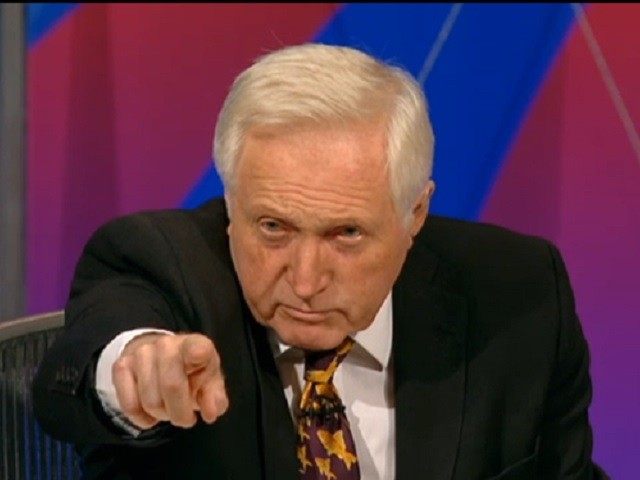On Thursday night I was due to fill in for Suzanne Evans on BBC Question Time as she was unfortunately taken ill and could not attend.
Let us put some emphasis that word, ‘due’, as on the morning of the programme my appearance was cancelled as it turns out at that I am not in fact a woman.
My perception of the BBC has been affected in two ways as a result of this incident. First, it seems fairly incompetent of the BBC to have not known that a person named ‘Steven’ is a bloke, and therefore if they wanted a woman why book me in the first place. Second, focussing on a guest’s gender and not on what they actually might have to say is a retrograde step for the BBC’s public service remit.
I can’t state with certainty that Suzanne and I would have said exactly the same things on all issues but since we are both committed to seeing UKIP candidates win at the next General Election, a UKIP presence would have enhanced the debate, not just because with a name like ‘Suzanne’ it is obvious to even the most partial BBC booker that she is a woman.
Humour aside, this episode is serious to me because UKIP is a party that focusses on the talent of the individual and not on their gender, race, or creed. Many of our Members of the European Parliament (MEP) are women and didn’t need quotas or short-lists to get elected, our members simply recognised that these were people with great passion and skills who made fantastic candidates.
We saw Jill Seymour top the list in the West Midlands, Margo Parker second in the East Midland and the same for Louise Bours in my constituency, the North West. These weren’t hand-picked by UKIP or parachuted-in A-list candidates, they were simply voted for democratically by our members.
Did I mention that UKIP have the most female MEPs of any party in the UK?
It seems more and more common for both the Labour and Conservative parties to pick women candidates purely because of their gender.
What ever happened to picking a candidate on merit? All women shortlists are an insult to women who work hard and deserve to be where there in their own right. Shortlists undermine their abilities. What’s next? Race based candidate shortlists? Race based lists sub-divided by ethnicity or religion? It’s a slippery, crazy slope, one I will fight every step of the way.
Pity I didn’t get a chance to voice this opinion on BBC’s Question Time!
Steven Woolfe is a Member of the European Parliament for the North West England region for the UK Independence Party

COMMENTS
Please let us know if you're having issues with commenting.